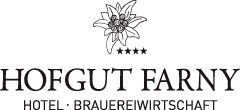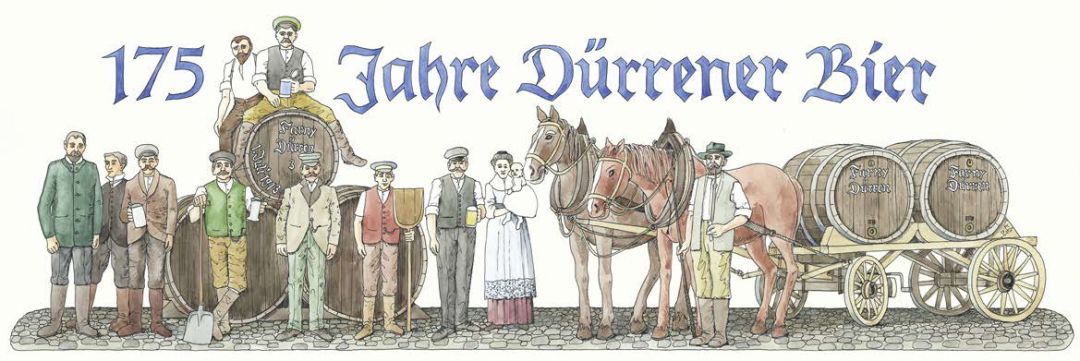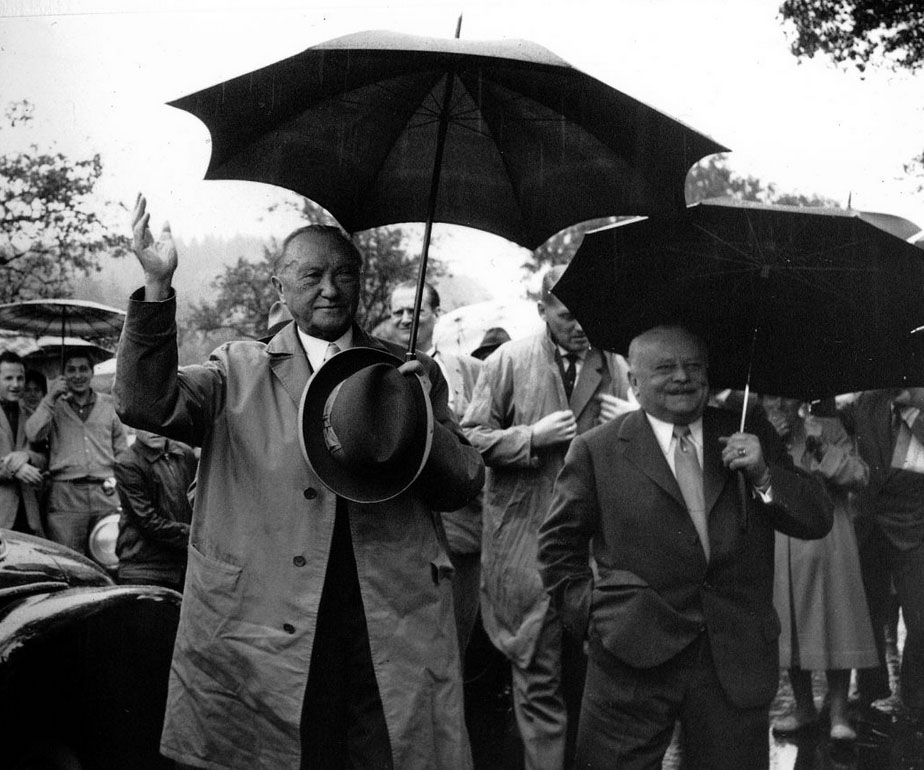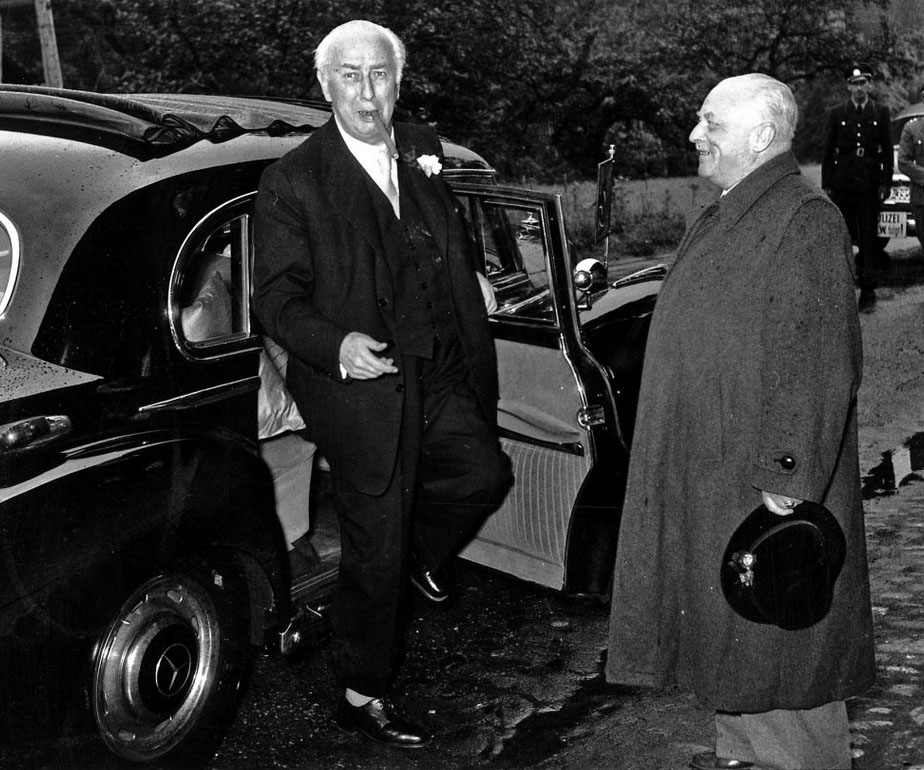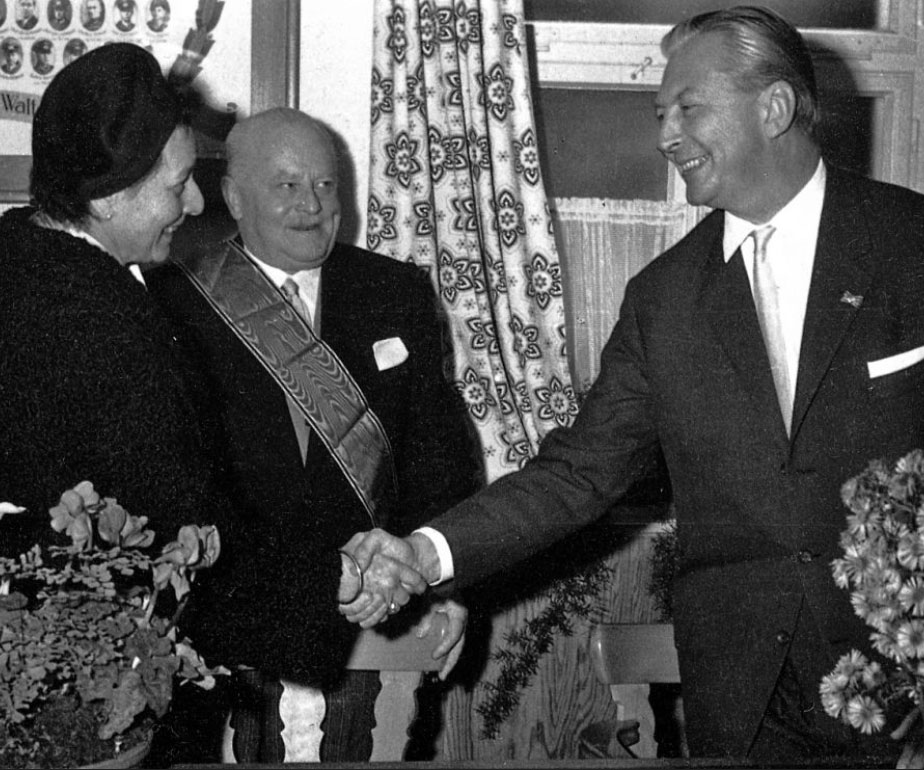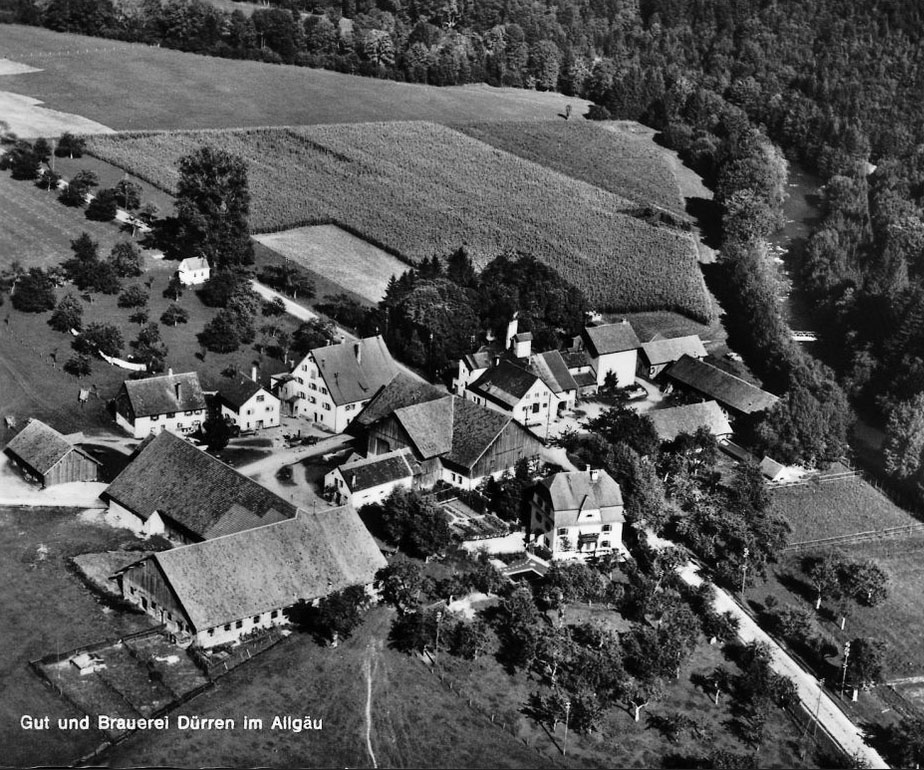The first innkeeper and brewer on the Dürren estate was Konrad Kugel, innkeeper and farmer in nearby Ratzenried. In 1808 he married the daughter of the landowner at Dürren and together with her he took over the farm and the estate from his parents-in-law. Kugel, after whom one of the old pubs bars in the brewery is named, was a highly praised as a farmer and was active in local politics as a member of the Waltershofen municipal council. It is probably also thanks to him that the bridge over the Argen was built. This bridge shortened the way to market for “his” Ratzenried folk. Kugel fulfilled his dream of having his own brewery next to the inn. The beer from the estate in Dürren quickly won friends. The innkeepers from the surrounding area would come to the brewery themselves to collect it, and once it was loaded, they would take a break in the brewery inn before driving home.
In 1856, the Kugels married couple handed over the brewery, inn and surrounding buildings to their daughter Bibiane and her husband, Eustachius Farny, the first Farny on the Dürren estate.
Oskar Farny took over the estate and brewery in the third generation, after his older brother, who was actually entitled to inherit according to ancient Allgäu inheritance law, become a priest in the wake of the First World War. From today’s perspective, this was a stroke of luck for the Dürren estate. “With his whole heart, the career officer Oskar Farny was a farmer of old. Firmly rooted in the Dürren estate and his property in the Alps between Hochgrat and Hoch Hädrich”, says Dr. Leist, the chairman of the Oskar and Elisabeth Farny Foundation and former mayor of Wangen. In the brewery, Oskar Farny was open to new ideas: crystal wheat beer was invented under his leadership in 1924, and is still associated with the Farny name today. “Bright and finely moussed like champagne” was the title of the 1929 expert report of the Weihenstephan Research Institute.
Following in the footsteps of his father Hugo Farny, Oskar Farny also took over the management of the Vereinigte Käsereien Dürren and used his later political career to support the Allgäu cheese industry. This is shown, for example, by photos of Federal President Theodor Heuss surrounded by huge cheeses. Farny’s political career began as early as 1920, when he was first elected to the Württemberg state parliament. In 1930 he was elected to the Reichstag as a man of the center. Ever since his time in military training in Weingarten before World War I, Oskar Farny had been friends with Erwin Rommel. In 1944, he secured Rommel’s diaries, preventing the Gestapo from seizing them. Just the day before his murder, Rommel was at the Dürren with his wife.
After the war, Farny continued his political career. He represented the state of Baden-Württemberg in Bonn as a minister of the Bundesrat. This led to the political prominence of the Dürren estate. Theodor Heuss, Konrad Adenauer, Carlo Schmid and many others were guests here. And it was here in 1960 that Kurt Georg Kiesinger presented Farny with the Grand Cross with Star and Sash of the Order of Merit of the Federal Republic of Germany.
